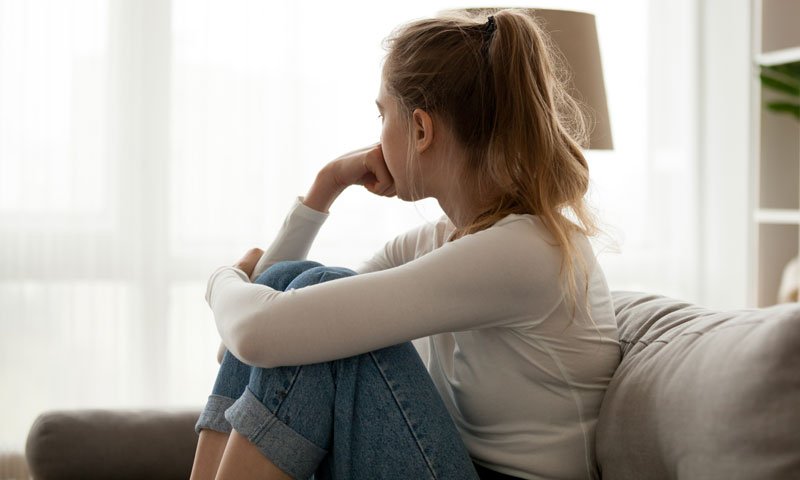The disappointment of normalcy.
Restricting my food and purging what I ate for so many years sucked. At the time, though, the fear caused by eating sucked worse.
The transition to normalcy- first stopping all bulimia-related behaviors, then stopping restriction- was rocky to say the least. It was really REALLY hard. And as with most things that are hard in life, I expected some kind of satisfaction or feeling of reward as milestones were made and passed.
I was ‘addicted’ to the dopamine rush from years of extreme restriction by day met with extreme bingeing at night. The abundance at night was my “reward” for the restriction of the day. And through the refeeding/rebuilding first couple of years, each challenge was preceded by self-induced pep talks and explosive determination. I really psyched myself out over the fears, and up over the associated challenges. I thought this was what I was supposed to do.
After my various feats- meat for the first time in 24 years, a cream puff for dessert, full fat cottage cheese- I then paraded my accomplishments in front of myself, often including my husband in the n=1 audience when making my victory speeches.
But the hoopla always felt a bit silly. Inflated. Unimpressive and contrived.
So did any overly-expressed feeling accompanying eating “normally”.
The going theme for those embarked on any recovery journey is to “be so proud of yourself!” And yeah, I suppose in a way I was, because only God knew as well as I did how tough each bite was. It was really REALLY hard. (I know I said that earlier, but I think people just really don’t get this so it’s a point worth a bit of redundancy!)
Yet I expected to feel more… something. And, to be honest, I was disappointed at nearly every meal for a while. I felt like somehow, since I’d fought this illness for over two decades, that a weight would lift off my shoulders. Or that my whole body and soul would come alive.
The food tasted AMAZING! I’ll give it that. Flavors I remembered from decades before and garnishes on my very own plate did light up a part of me that had all but shriveled away. Nonetheless, given how much visualization I needed to do before each meal (imagining what the food looked like on my plate, watching my imaginary self take bites, willing upcoming me to be peaceful and pleased with herself for overcoming another fear), I think that only the arrival of an angel on my shoulder or fairy swinging her legs off the edge of my licked-clean plate could have matched the magnitude of incredulity I anticipated.
But here’s the thing-
Aside from occasional decadence or unusual taste experiences (like exposure to an ethnic cuisine foreign to your palate), eating isn’t supposed to be parade worthy.
Food is just food.
When you deprive yourself for something for a truly long time, the brain puts excessive attention on that which is lacking. This is part of how the brain works with the body to preserve nutritional balance and homeostasis. This phenomenon applies to most areas of life too- not just food. (Think about what happens when you take something away from a child, or tell someone they can’t have something- it momentarily becomes their life’s sole mission.)
It’s almost as if the thrill is in the chase. And once the victory is won, it’s “on to the next thing” for our brains.
Instagram and various recovery collectives online showcase countless individuals overcoming various struggles with food and portraying their newly-found freedom through reels of food porn choreographed to recognizable tunes. No doubt this exemplifies to those still in the trenches what an abundant life lay ahead after they let go of all the confining rules. Why else would “What I Eat In A Day” YouTube videos top the charts if restrictive eating wasn’t pandemic?
It took my a while to get to the roots of just what I was feeling, and what I wanted to feel, each time a new recipe was made, I snacked on something uncharacteristic before lunch, or spooned ice cream from the bucket without logging it in Chronometer. But through deep reflection about the kind of relationship I truly wanted to have with food, I realized that only when food became “just food” would I know that my emotion’s opinions weren’t actually calling the shots.
Cooking and all things food-related have always been passions of mine. But they took on a dark intensity through my struggles with anorexia and bulimia. There was a hyper awareness around food- both what I ate and what others ate. My mind was obsessed with that which it was denied. Every bite was the best thing I’d ever tasted, and simultaneously drove my brain into calculation mode to ensure each had previously been accounted for through some form of earlier restriction.
Initially, when the struggles over meals were intense, planning and reflecting over them afterwards maintained a placeholder of focus. Once food was allowed freely though, it somehow lost its novelty. The chase was over. Rather than a fairy arriving at the table or, more reasonably, simply feeling a rush of endorphins and accomplishment, I was left with more of a void. A “Is that all?” feeling.
And the disappointment over normalcy meant I was actually, truly, once-for-all, really healing.
